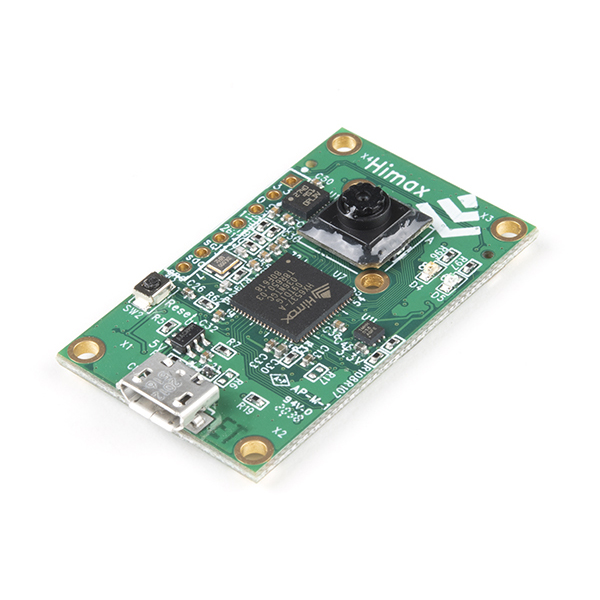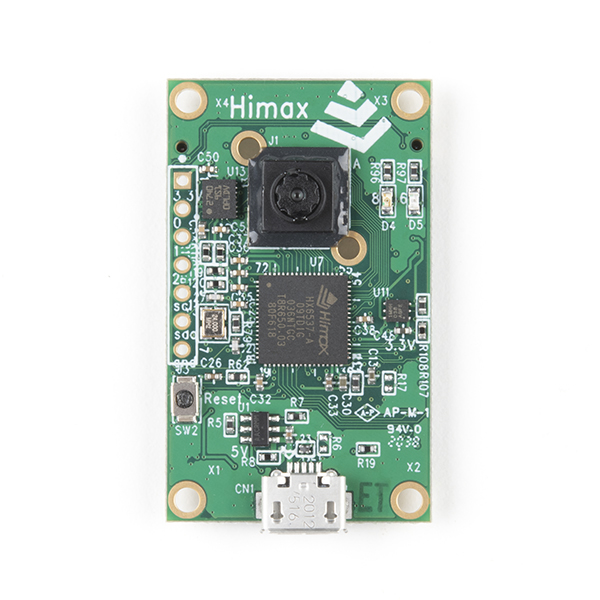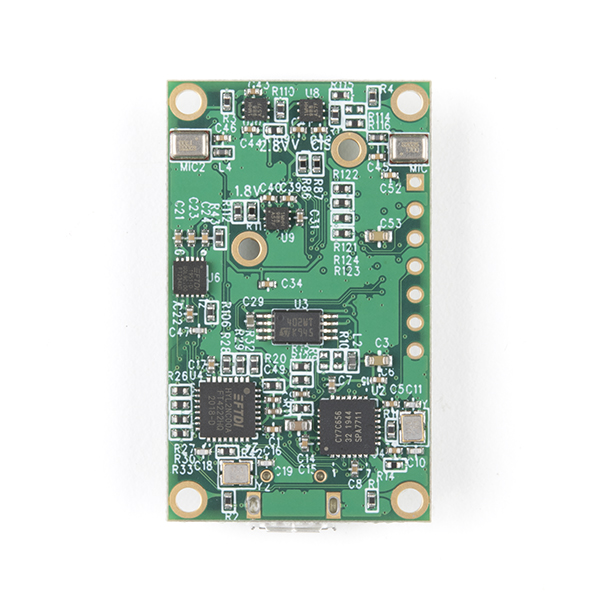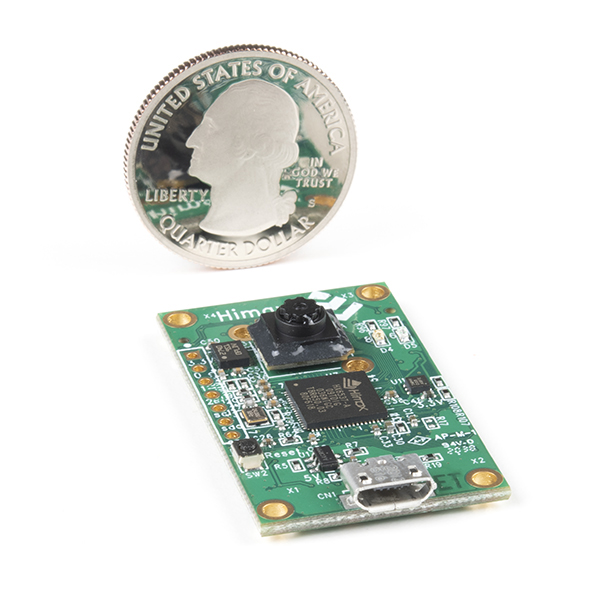Himax WE-I Plus EVB Endpoint AI Development Board
The Himax WE-I Plus EVB Endpoint AI Development Board is the perfect solution for just that; a computer/machine vision or AI endpoint.
In collaboration with Google TensorFlow Lite for Microcontrollers framework and Synopsys embARC MLI library, the Himax WE-I Plus EVB provides a complete development environment to deploy all TensorFlow Lite for Microcontrollers examples; “Person detection”, “Micro speech”, and “Magic wand”, for “Vision”, “Voice” and “Vibration” applications.
The WE-I Plus EVB uses a built-in WE-I Plus ASIC (HX6537-A) with embedded Synopsys ARC EM9D DSP running at 400MHz and 2MB internal SRAM and 2MB Flash for larger Neuro Network model deployment. To support “Vision” applications, this board features a Himax HM0360 ultra-low-power VGA mono camera. The latency time for 250KB TensorFlow Lite for Microcontrollers “Person detection” example is only 40ms. To support “Voice” applications, this board features two MEMS microphones. The latency time of the 20KB TensorFlow Lite for Microcontrollers “Micro speech” example is only 6ms. To support “Vibration” applications, this board features a STM LSM9DS1 IMU for 3-axis accelerometer function. The WE-I Plus features an ASIC embedded EM9D DSP Floating-Point-Unit (FPU).
Finally, the WE-I Plus EVB has 2 LEDs to indicate classification result and a built-in FTDI USB to SPI/I2C/UART bridge for Flash programming and metadata or message output. It also provides an expansion header with I2C and GPIOs interface to add external sensors or devices.
- WE-I Plus ASIC (HX6537-A)
- ARC 32-bit EM9D DSP with FPU
- 400MHz clock frequency
- 2MB SRAM
- 2MB Flash
- Himax HM0360 AoS TM ultra-low power VGA CCM
- 1/6" CMOS Sensor
- 640 x 480 Pixel
- 60 FPS
- FTDI USB to SPI/I2C/UART bridge
- LDO power supply (3.3/2.8/1.8/1.2V)
- 3-axis accelerometer (STM LSM9DS1)
- 1x reset button
- 2x microphones (L/R)
- 2x user LEDs
- MicroUSB connector
- Expansion header
- 1x I2C port
- 3x GPIOs
- Power/Ground
Himax WE-I Plus EVB Endpoint AI Development Board Product Help and Resources
Core Skill: Soldering
This skill defines how difficult the soldering is on a particular product. It might be a couple simple solder joints, or require special reflow tools.
Skill Level: Noob - Some basic soldering is required, but it is limited to a just a few pins, basic through-hole soldering, and couple (if any) polarized components. A basic soldering iron is all you should need.
See all skill levels
Core Skill: Programming
If a board needs code or communicates somehow, you're going to need to know how to program or interface with it. The programming skill is all about communication and code.
Skill Level: Expert - You should be extremely comfortable programming on various hardware in several languages.
See all skill levels
Core Skill: Electrical Prototyping
If it requires power, you need to know how much, what all the pins do, and how to hook it up. You may need to reference datasheets, schematics, and know the ins and outs of electronics.
Skill Level: Rookie - You may be required to know a bit more about the component, such as orientation, or how to hook it up, in addition to power requirements. You will need to understand polarized components.
See all skill levels
Comments
Looking for answers to technical questions?
We welcome your comments and suggestions below. However, if you are looking for solutions to technical questions please see our Technical Assistance page.
Customer Reviews
No reviews yet.




